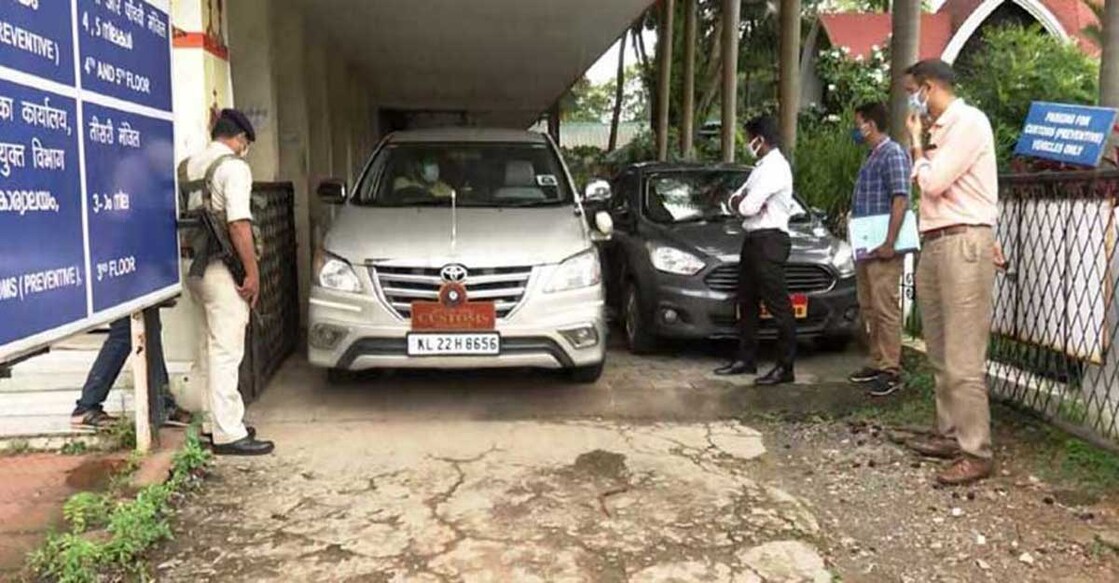Kerala govt uses RTI to seek details of dates import case from Customs

Mail This Article
Thiruvananthapuram: In an unprecedented move, the LDF government in Kerala has sought to know from the Customs department, through an RTI query, details of cases filed by the agency in connection with the recent import of dates through the UAE consulate here.
The move assumes significance in the wake of the Customs recently registering two cases against the state government for allegedly accepting consignments of the Holy Quran and thousands of kilograms of dates imported by the consulate officials for their personal use through diplomatic channel.
It is perhaps the first time that the state government is seeking details from a central investigating agency through RTI like this.
Additional state Protocol Officer A P Rajeevan had submitted the RTI application on January 28, asking six questions in connection with the Customs cases and the procedural details of such imports.
The government wanted to know who was responsible for the non-payment of Customs Duty when goods, imported without the payment of duty for use in diplomatic offices like Embassies/Consulates, are otherwise used.
A reply was sought on the number of cases in which prosecution has been launched before initiating adjudication proceedings by the Customs Department in the state during the last two years in the matter of evasion of customs duty.
The government wanted to know how many people had been served with summons under Section 108 of the Customs Act, 1962 in connection with the inquiry in the import of dates by the UAE Consulate here.
The names and designation of such and the names of organisations in which they belong to were sought through RTI.
The Customs was also requested to furnish details of the procedures the probe agency has to follow to ensure proper usage of the goods for issuing the exemption certificate.
Besides registering two cases against the state government, Customs had also launched a probe into the role of "some powerful persons" who allegedly violated the laws.
Customs officials had said the state government had accepted 18,000 kg of dates imported by the UAE consulate officials in Thiruvananthapuram in 2017 for their personal use.
Similarly, consignments of the Holy Quran imported by the consulate were also accepted by state government officials.
Officials said there were clear cases of violation of the Customs Act as the state government accepted those items brought by the diplomats for their personal use by availing tax exemption certificate.
They said the state government officials very well know that they are forbidden from taking anything from the foreign government.
The UAE consulate officials imported certain items for their personal use and the state government accepted those items for distribution in certain places.
So there is a clear case of violation of certain provisions under the Customs Act, Money Laundering Act and Foreign Contribution Regulation Act (FCRA), they claimed.
The officials said "some powerful persons" in the state government who accepted those items as gifts for distribution in certain places will have to be interviewed to get their clarification on the matter.
The Customs claimed that the state Protocol Department had granted tax exemption to the UAE consulate to import 18,000 kgs of dates in 2017 and over 4,000 kg baggage containing the Holy Quran in 2020 for the personal use of the officials of the Arab nation when they applied for the same.
State Higher Education Minister K T Jaleel had been questioned by Customs on November 9 2020 over the alleged violation in accepting consignments of Holy Quran imported by the consulate officials for their personal use.
(with inputs from PTI)

